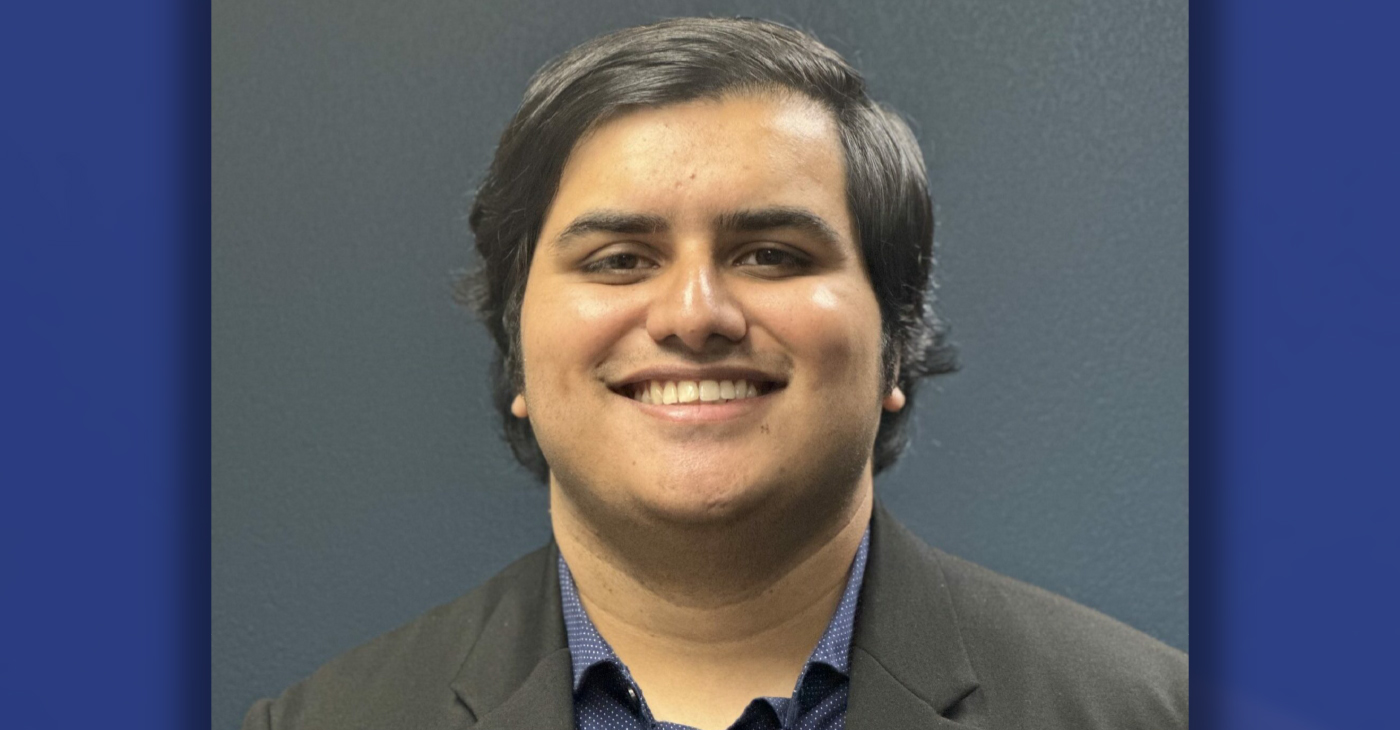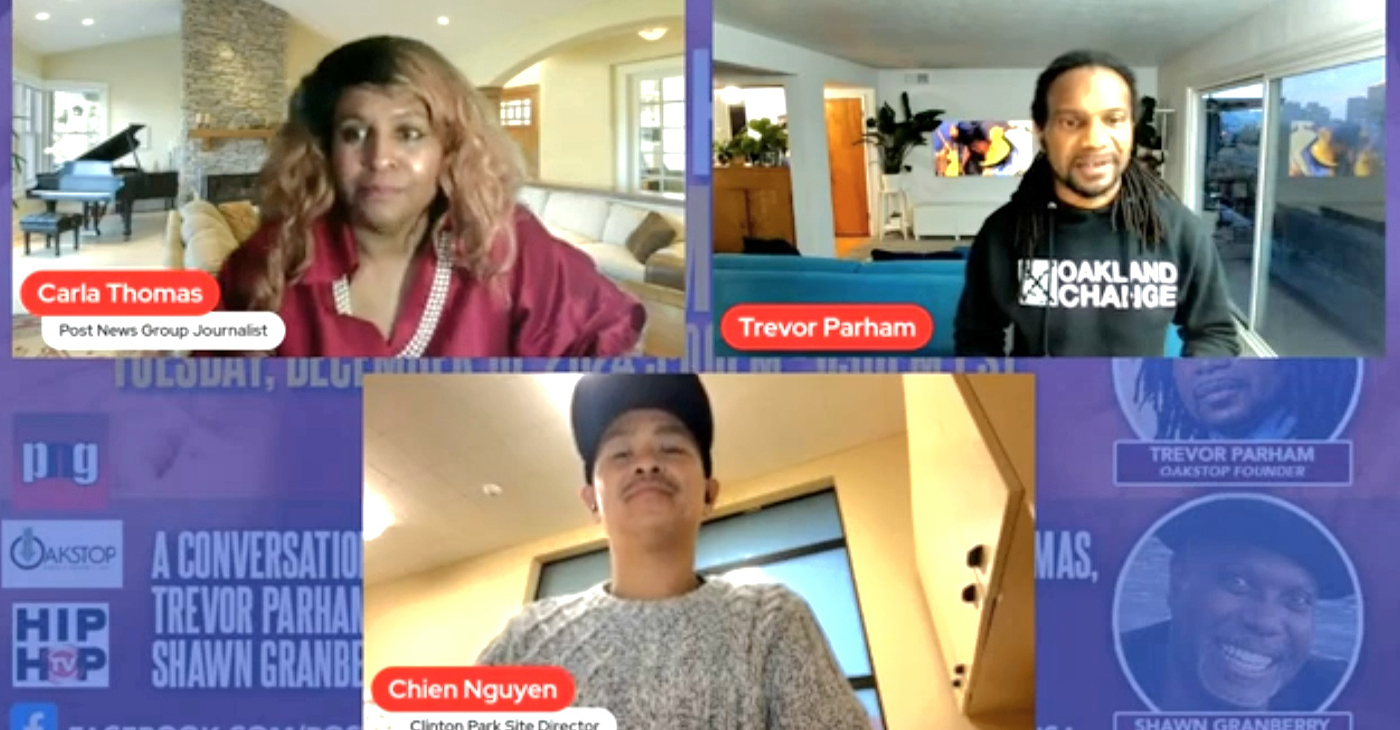racism
6 Ferguson activists have died suspiciously since 2014
ROLLINGOUT.COM — Ferguson, Missouri, is back in the news after several young Black male activists in the city are dead.
By Mo Barnes
The death of unarmed Black teen Michael Brown was a watershed moment in race relations in America. Brown was shot dead by former Ferguson police officer Darren Wilson while his arms were raised. It led to the rallying cry from supporters of “Hands up, don’t shoot.”
Mo Barnes
Now more than four years later, Ferguson, Missouri, is back in the news after several young Black male activists in the city are dead. According to The New York Times and Associated Press as well as previous reports in rolling out, at least six young men have died in the Ferguson area.
— In September 2016, Darren Seals, 29, was found dead in a burning car. He was shot multiple times, and police have no leads in his death.
— In February 2016, MarShawn McCarrel of Columbus, Ohio, was found dead outside the entrance to the Ohio state capitol building. Police have stated that his death was a suicide. He was an activist in the Ferguson protests.
— In May 2017, Edward Crawford Jr., 27, who famously was seen throwing a tear gas canister back at police during protests, allegedly committed suicide. A photograph of Crawford won a Pulitzer Prize for the St. Louis Post-Dispatch.
— On Oct. 17, 2018, Danye Jones, 24, was found hanging from a tree. His mother, Melissa McKinnies, was a member of the grassroots organization Lost Voices that protested Brown’s death. McKinnies claims her son was lynched after a series of death threats. When rolling out interviewed Sgt. Shawn McGuire, the public information supervisor with the St. Louis County Police Department, about Jones’ death, he said all indications pointed to a suicide.
— In November 2018, Bassem Masri, a 31-year-old Palestinian American who live-streamed video of Ferguson protests, collapsed on a bus and could not be resuscitated. Police said that he died of an apparent fentanyl overdose in February 2019, according to a toxicology report.
All six deaths have raised the specter of an ongoing conspiracy in perhaps one of the most heated racial events in recent American history.
This article originally appeared in Rollingout.com.
Activism
MacArthur Fellow Dorothy Roberts’ Advocates Restructure of Child Welfare System
Roberts’s early work focused on Black women’s reproductive rights and their fight for reproductive justice. In “Killing the Black Body: Race, Reproduction, and the Meaning of Liberty 1997)”, she analyzes historical and contemporary policies and practices that denied agency to Black women and sought to control their childbearing—from forced procreation during slavery, to coercive sterilization and welfare reform—and advocates for an expanded understanding of reproductive freedom.

Special to The Post
When grants were announced Oct. 1, it was noted that eight of the 22 MacArthur Fellows were African American. Among the recipients of the so-called ‘genius grants’ are scholars, visual and media artists a poet/writer, historian, and dancer/choreographer who each receive $800,000 over a five-year period to spend as they see fit.
Their names are Ruha Benjamin, Jericho Brown, Tony Cokes, Jennifer L. Morgan, Ebony G. Patterson, Shamel Pitts, Jason Reynolds, and Dorothy Roberts. This is the eighth and last in the series highlighting the Black awardees. The report below on Dorothy Roberts is excerpted from the MacArthur Fellows web site.
A graduate of Yale University with a law degree from Harvard, Dorothy Roberts is a legal scholar and public policy researcher exposing racial inequities embedded within health and social service systems.
Sine 2012, she has been a professor of Law and Sociology, and on the faculty in the department of Africana Studies at the University of Pennsylvania.
Roberts’s work encompasses reproductive health, bioethics, and child welfare. She sheds light on systemic inequities, amplifies the voices of those directly affected, and boldly calls for wholesale transformation of existing systems.
Roberts’s early work focused on Black women’s reproductive rights and their fight for reproductive justice. In “Killing the Black Body: Race, Reproduction, and the Meaning of Liberty 1997)”, she analyzes historical and contemporary policies and practices that denied agency to Black women and sought to control their childbearing—from forced procreation during slavery, to coercive sterilization and welfare reform—and advocates for an expanded understanding of reproductive freedom.
This work prompted Roberts to examine the treatment of children of color in the U.S. child welfare system.
After nearly two decades of research and advocacy work alongside parents, social workers, family defense lawyers, and organizations, Roberts has concluded that the current child welfare system is in fact a system of family policing with alarmingly unequal practices and outcomes. Her 2001 book, “Shattered Bonds: The Color of Child Welfare,” details the outsized role that race and class play in determining who is subject to state intervention and the results of those interventions.
Through interviews with Chicago mothers who had interacted with Child Protective Services (CPS), Roberts shows that institutions regularly punish the effects of poverty as neglect.
CPS disproportionately investigates Black and Indigenous families, especially if they are low-income, and children from these families are much more likely than white children to be removed from their families after CPS referral.
In “Torn Apart: How the Child Welfare System Destroys Black Families—and How Abolition Can Build a Safer World (2022),” Roberts traces the historical, cultural, and political forces driving the racial and class imbalance in child welfare interventions.
These include stereotypes about Black parents as negligent, devaluation of Black family bonds, and stigmatization of parenting practices that fall outside a narrow set of norms.
She also shows that blaming marginalized individuals for structural problems, while ignoring the historical roots of economic and social inequality, fails families and communities.
Roberts argues that the engrained oppressive features of the current system render it beyond repair. She calls for creating an entirely new approach focused on supporting families rather than punishing them.
Her support for dismantling the current child welfare system is unsettling to some. Still, her provocation inspires many to think more critically about its poor track record and harmful design.
By uncovering the complex forces underlying social systems and institutions, and uplifting the experiences of people caught up in them, Roberts creates opportunities to imagine and build more equitable and responsive ways to ensure child and family safety.
Activism
Council of Islamic Relations Applauds Alameda County Decision to Divest $32M from Caterpillar
The divestment from Caterpillar, a company criticized for its human rights abuses globally—including the destruction of Palestinian homes, infrastructure, and agriculture, as well as in the U.S. prison-industrial complex, border militarization, and immigration detention centers—is a significant step in ensuring that Alameda County’s financial resources do not perpetuate harm.

Special to The Post
The San Francisco Bay Area office of the Council on American-Islamic Relations (CAIR-SFBA), the nation’s largest Muslim civil rights and advocacy organization, this week welcomed the Alameda County Board of Supervisors’ decision to divest $32 million in public funds from Caterpillar and unanimously commit to adopting an ethical investment policy.
The Board’s decision follows months of advocacy by Bay Area Divest!, a coalition of community organizations calling for accountability in public investments.
The divestment from Caterpillar, a company criticized for its human rights abuses globally—including the destruction of Palestinian homes, infrastructure, and agriculture, as well as in the U.S. prison-industrial complex, border militarization, and immigration detention centers—is a significant step in ensuring that Alameda County’s financial resources do not perpetuate harm.
In November, CAIR welcomed the reported freeze on the delivery of bulldozers to Israel as an “implicit admission” by the Biden Administration that the far-right Netanyahu government is using that equipment in the ethnic cleansing of Gaza.
CAIR-SFBA Policy Coordinator Musa Tariq said:
“This is a historic moment for Alameda County, demonstrating the power of community advocacy and the County’s leadership in ethical governance. The decision to divest from Caterpillar sends a clear message that public funds should not support corporations complicit in human rights violations.”
In addition to divesting from Caterpillar, the Board voted to move forward with developing a comprehensive Ethical Investment Policy, recommended by District 5 Supervisor Keith Carson.
This policy will include criteria to exclude “investments in industries, corporations, or governments that perpetuate harm to communities and the planet,” such as fossil fuel extraction, weapons production, and entities involved in war crimes, apartheid, and other severe human rights violations.
Alameda County has a proud legacy of socially responsible investment. In 1985, the County divested from South Africa to protest apartheid, and in 1996, it barred investments in companies doing business with Burma due to human rights abuses.
“This forward-thinking policy positions Alameda County as a leader in socially responsible investing,” added Tariq. “By committing to craft the policy within 90 days and implement it within six months, the County has set an ambitious and commendable timeline.”
CAIR-SFBA is an office of CAIR, America’s largest Muslim civil liberties and advocacy organization. Its mission is to enhance the understanding of Islam, protect civil rights, promote justice, and empower American Muslims.
Activism
Post News Group Hosts Second Virtual Town Hall on Racism
“While our society tends to rebrand over the decades, we find hate as the new word, broadening its arch of issues in society,” said show host and Post News Group Global Features Journalist Carla Thomas. “However, the very first form of hate, which is racism, built this country.”

By Post News Group
Post News Group Global Features Journalist Carla Thomas recently hosted a second Virtual Town Hall on Racism, with guests including community builders Trevor Parham of Oakstop and Chien Nguyen of Oakland Trybe.
Thomas opened the town hall by paying homage to the ancestral losses of the African diaspora and to the Indigenous tribes, the enslaved, the freed, and the trailblazers of the Civil Rights Movement, Black Lives Matter Movement, and those more recently victimized by police brutality.
After thanking Bay Area non-profits for their work, Thomas led a thoughtful discussion on the importance of acknowledging racism as the first form of hate that built America.
“While our society tends to rebrand over the decades, we find hate as the new word, broadening its arch of issues in society,” she said. “However, the very first form of hate, which is racism, built this country,” she said.
“That act of othering, creating a narrative that made African people, indigenous people, and ultimately melanated people, labeled as less than human justified the colonizers act of subjugating our ancestors to inhumane, incomprehensible treatment for over 400 years,” said Thomas.
Parham of Oakstop, located at 1721 Broadway, explained that Nazi Germany patterned its mistreatment and extinction of Jews in the Holocaust after chattel slavery in America and the Jim Crow apartheid system that followed it.
“Nazi Germany found America’s treatment of Blacks so inhumane and denigrating that they (decided) it would actually be the perfect ingredient to undermine another group of people,” said Parham. “So, they essentially borrowed from what Americans did to Black people.”
Thomas pivoted the discussion to the limitations placed on Black America’s generational wealth through policies of red-lining, redevelopment, and title deeds to this day, based on the idea that no Black or indigenous person is allowed to purchase property or land.
“For this reason, there continue to be impoverished Black communities throughout the nation,” she said.
“The structures of racism from red-lining to lack of access to capital continue to restrict Black (people) in America; this structural racism kind of finishes you before you even start,” added Parham. “The lack of generational wealth has left our communities at a disadvantage because with generational wealth we’d have the resources to police our own communities and build further.”
Nguyen, Clinton Park site director for Oakland Trybe, spoke about his parents’ journey as immigrants from Vietnam, the challenges of being teased in school, and how his troubled brother was murdered.
Nguyen has turned his personal tragedies into triumph, pivoting from a career as an eight-year business owner in the Little Saigon community of East Oakland, to now a non-profit leader transforming and reclaiming the community’s Clinton Park at International Boulevard and Sixth Street..
“A park represents community, and between the pandemic, illegal activities, and homelessness, the park needed to be re-established, and we now offer programming for the youth and extended community,” he said.
“Between Oakstop’s business model of purchasing commercial properties and transforming them into beautiful spaces for community ownership, business space, and special event hubs, and Oakland Trybe’s ability to transform public spaces central to a community and empower our communities, we have solutions,” Thomas said.
Throughout the conversation, Parham referred to a press conference hosted at Oakstop in August where NBA icons Jason Kidd and Jaylen Brown pledged to raise $5 billion for Black businesses in the nation.
“Inspired by Black Wall Street, Jaylen began with Boston and created the Boston Xchange because he became aware of a statistic noting that white households in Boston average $250,000 and Black households averaged a mere $8 in wealth,” Parham said.
In Oakland, he established the Oakland Xchange to expand the movement right at Oakstop, he said.
Thomas encouraged viewers to connect with her guests and tap into the dozens of organizations making a change. “I encourage you to join your chambers of commerce, your community-based organizations, non-profits, and churches to uplift and rebuild the community,” she said.
Thomas also suggested that the NAACP as a great start. “The Oakland chapter’s resolution developed around racism was adopted by the national NAACP, and at the Afrotech Conference, national NAACP leader Derrick Johnson announced a $200 million fund to support Black funders.”
Thomas informed viewers of the California vs. Hate, initiative, a non-emergency hate incident and hate-crime reporting system to support individuals and communities targeted for hate.
“Your reports inform the state of where to designate resources and extra support,” said Thomas.
For more information, visit PostNewsGroup.com, CAvsHATE.ORG or call 1-833-8-NO-HATE.
-

 Activism4 weeks ago
Activism4 weeks agoOakland Post: Week of November 20 – 26, 2024
-

 California Black Media4 weeks ago
California Black Media4 weeks agoCalifornia to Offer $43.7 Million in Federal Grants to Combat Hate Crimes
-

 Black History4 weeks ago
Black History4 weeks agoEmeline King: A Trailblazer in the Automotive Industry
-

 California Black Media4 weeks ago
California Black Media4 weeks agoCalifornia Department of Aging Offers Free Resources for Family Caregivers in November
-

 California Black Media4 weeks ago
California Black Media4 weeks agoGov. Newsom Goes to Washington to Advocate for California Priorities
-

 Activism4 weeks ago
Activism4 weeks agoOCCUR Hosts “Faith Forward” Conference in Oakland
-

 Activism3 weeks ago
Activism3 weeks agoOakland Post: Week of November 27 – December 3, 2024
-

 Activism4 weeks ago
Activism4 weeks agoRichmond Seniors Still Having a Ball After 25 Years
























































